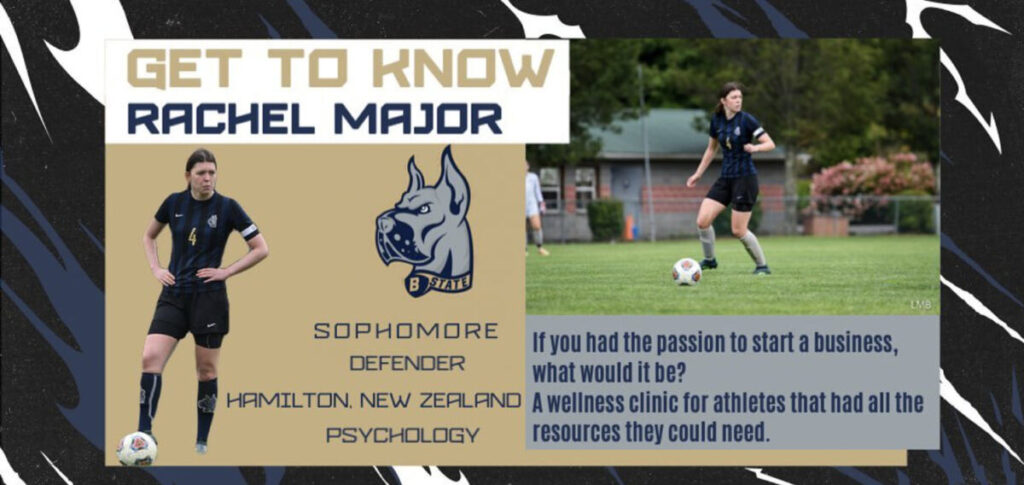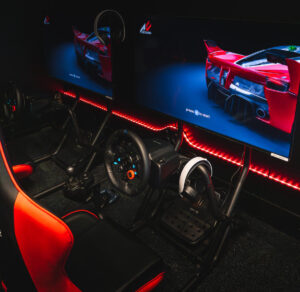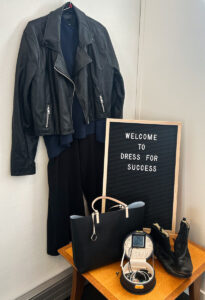The Football Grind Doesn’t Stop
Rachel Major shares her journey as an emerging footballer, the struggles of losing her dad, challenges of leaving her home and how the game differs at higher levels overseas.
“Come on Rachel, get it!”
Completely locked into her game, number 15 doesn’t hear a single supporters’ cheer as she launches herself into the ball’s path making a perfect sliding tackle. More cheers fall on deaf ears as she immediately rises to her feet with the ball glued to her right foot.
Looking up, she sees her teammate screaming down the wing and sends the ball soaring over the defenders right to her. After two superb touches and a finely placed shot, the ball hits the back of the net to make it one to nil.
Despite being on her off-season, the football grind doesn’t stop, and Rachel allows herself no excuse for anything less than her best. This time though, she allows herself a brief moment to soak in the side-line’s cheers.
Rachel Major is a Hamilton-born football talent who plays on a scholarship in West Virginia. Having completed her second year of study at Bluefield College, Rachel is back in Aotearoa for her “summer” holidays. In the few months she is back home, Rachel is playing for her old club, Hamilton Wanderers. Although she’s playing the same sport, things work a little differently in the United States.

“While Europeans, South Americans, and now, Kiwis focus mostly on tactical and technical abilities, Americans focus on becoming an athlete first and foremost,” said Major. “So, while their touch, passing and shooting may not be the best, they’ll always beat you in a sprint or be able to push you off the ball easily if you’re not prepared.” As a football fan, one would easily pick up on the nature of the game, but not many realise how differently other countries and cultures have adapted the game.
Football is the world’s most popular sport with an estimated 5 billion fans. According to Sport New Zealand, it is also the number one most played team sport in New Zealand. Founded in England 1863, the Football Association became colloquially known as soccer (the word being derived from association). Now though, the universally accepted name is football, unless you’re in the United States. Curiously and unbeknownst to many, this debunks the common misconception that soccer is just an American name for the sport.
In New Zealand, the top women’s team (aside from the national team) is the Wellington Phoenix who play in Australia’s A-League. As the top women’s league in Australia, it is unfortunately only semi-professional whereas the men’s A-League is fully professional and pays much better. During the 2016-17 season, Tim Cahill signed for A-League side Melbourne City. Following an illustrious career for the Australian National Team and multiple clubs throughout Europe and Asia, Cahill earned 3.5 million AUD. The following season, all 181 Women’s A-League players’ wages combined made only 2.2 million AUD. Thus, women’s football is not a viable career option here without a second job. In the United States though, women’s football has come a lot further than in New Zealand with their high quality of college football and well-paid professional leagues.
According to International Federation of Association Football (FIFA), “In recent years, women’s football has enjoyed remarkable growth across different continents, notably in Europe and North America. The game has risen in both participation and interest, thus laying the foundation for the generation of higher commercial returns for the long-term benefit of the whole football movement.” The first country to make women’s football professional was Italy in 1968 who hosted the first Martini Rosso Cup (i.e. the unofficial first ever Women’s’ World Cup) just two years later. This year, New Zealand and Australia are co-hosting the FIFA Women’s World Cup which is a great opportunity for kiwi locals and visitors to show their support and encourage women’s football.
Like so many around the world, Major found her love for football at a young age. “When I was three years old, my big cousin, Jordan, asked my parents if I could join his football team and they said yes. So, I was the three-year-old girl playing with five-year-old boys, but I fell in love with the game straight away and have been playing ever since.”
“So, I was the three-year-old girl playing with five-year-old boys, but I fell in love with the game straight away and have been playing ever since.”
Rachel Major on her introduction to football
Though her cousin was the one to introduce her to football, Major’s dad was a much stronger influence. “My dad also loved football. He played a lot as a kid but unfortunately when he was diagnosed with a brain tumour, he was unable to play anymore.” Even with cancer, Major’s dad would support her at every game he possibly could. “Every time I play, I think about him watching and imagine what he would say about the game.”

Football is a sport that encompasses more than just the field or one’s TV screen. Many people’s hearts and lives revolve around the little leather ball. Bunny Shaw is a Jamaican national who plays for her country and the Manchester City women’s team. Her journey to greatness was no easy task though, considering the state of women’s football in her country. Growing up rough, she lost three brothers due to gang violence and would play football using her only pair of shoes. She would play on the streets with the local boys. “My mum would say, ‘you’re wasting your time, female football isn’t going anywhere”. Somewhat of a miracle, Bunny was selected by an overseas scout for a scholarship to Eastern Florida State College. This stepping stone has led her to Jamaica’s second consecutive World Cup appearance this coming July. Her testimony of coming from such a rough upbringing to performing on the world’s stage is an inspiration to the football world, and youth worldwide.
Just like Bunny’s story, it took a lot of determination for Major to progress from playing in her backyard to earning a scholarship. “A lot of girls at my level have started to go to America on a football scholarship and it’s been my dream since I was about 13, so I did what I had to do to make it happen. It’s not as hard as you think as there are many opportunities over there, not just for the best of the best.”
Major’s mother, Heather, has fully supported her daughter’s dream her whole life – even more so following her husband’s passing. “Even back in early days watching Bend it Like Beckham and being a girl footballer, she definitely always had the dream.” After sending her daughter overseas, Heather reflected on her experiences as a parent. “Kids really need you during that first year of transition and culture shock. Because, even though they speak the same language and look the same, Rachel keeps saying the American culture is very different to our culture. And you just don’t realise it till you get there.” Heather finalised her thoughts with, “communication with your kids overseas is really important.”
For both aspiring and professional football players alike, the football grind does not stop. Determination and willpower to fight against all odds have landed Shaw at the one of the biggest clubs in the world and helped Major secure a promising scholarship.
Similarly, Mikael Horgan, Waihi born and raised, has also experienced the US scholarship journey. Horgan compared his experience playing division one men’s college football to the social Tauranga league he plays in now. “As a Division One college they had their own physiotherapists and everything, but I prefer the New Zealand culture playing these days.” Though Horgan no longer aims to play professionally due to injuries, he appreciates the opportunity he had and wouldn’t trade it for anything.
Horgan and Major’s experiences are consistent with many young Kiwis on scholarship, but it’s their mentality which truly stands out. As articulated by Major, “Take all opportunities given to you! Even a bad experience is still an experience, and you will learn so much regardless of how much you enjoyed it.”
“Take all opportunities given to you! Even a bad experience is still an experience, and you will learn so much regardless of how much you enjoyed it.”
Major’s advice on how to make the most of one’s talent
Looking forward, Major plans to continue with football as long as she can. Ask any serious football player and they will tell you that going pro is the dream. For Major, things are no different. “If the national team or a professional club came knocking then I would happily answer the door.” With the Women’s World Cup just around the corner, literally, her dreams and role models are at her fingertips. She has the world to play for… one day. For now, Major states “I’m happy playing at the level I’m at whilst continuing to improve and I hope to play until I can’t anymore.”
Her goal of playing professional football ever in mind, Major would love to get into professional coaching later in her life. Remember the name as she just might be representing New Zealand in the next World Cup.




